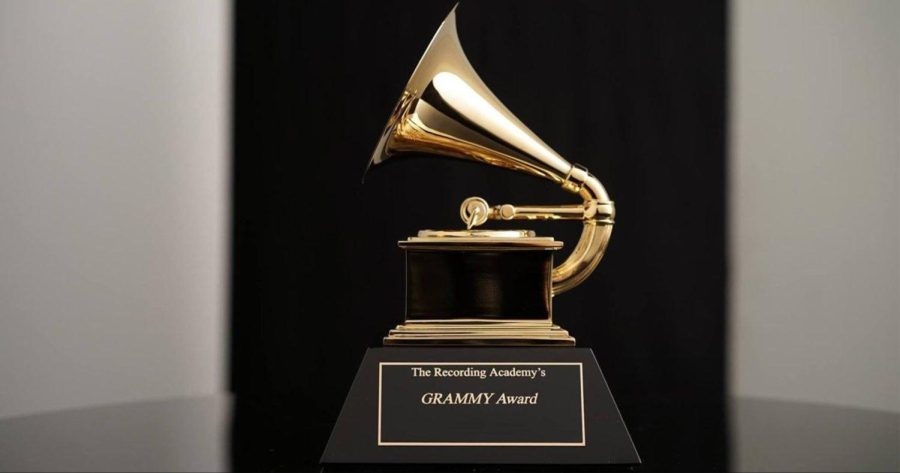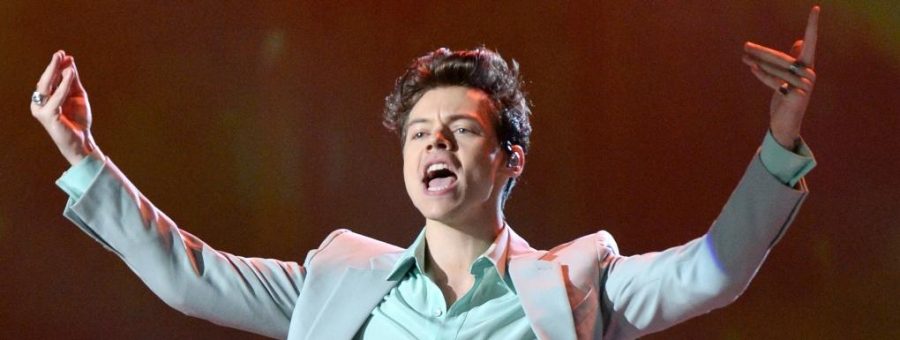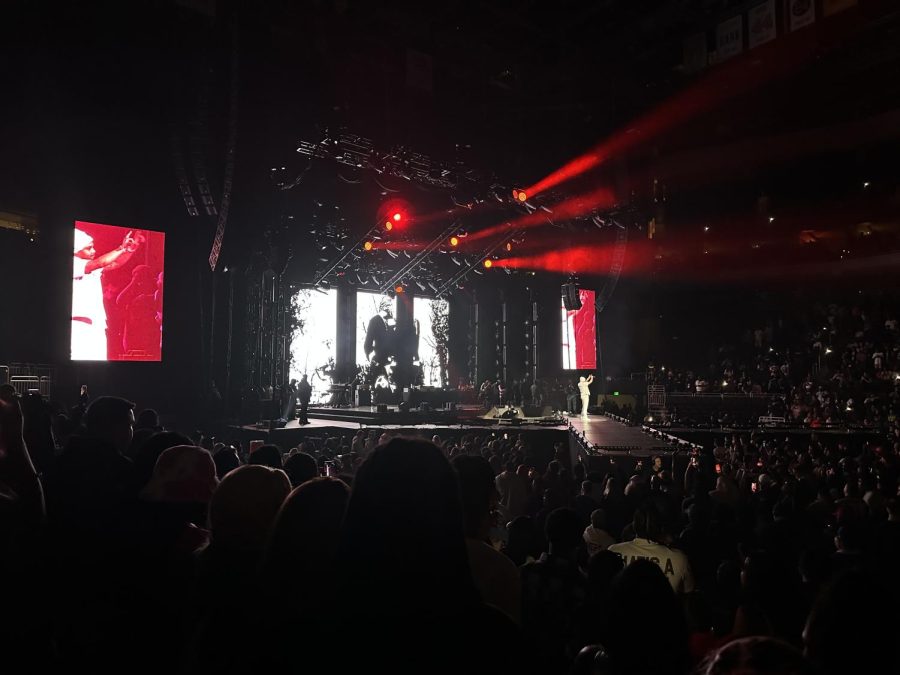Rashad Alexander – Music Director
The Grammys are a weird subject for me. I try not to show any interest in the awards due to their known corruption and constant snubs, but it’s hard to do that when these are the biggest awards handed out in music. Every year, it’s always something new with the recording academy that is going to make the people talk, and the nominees for the 2023 Grammys are no different. Here are my pluses and minuses from this year’s nominations.
Plus – Bad Bunny for Album of the Year
I’ll be honest, I joined the Bad Bunny train pretty late this year. Beforehand, I was wondering just how he was selling out football stadiums on tour, and how he was able to be #1 on Billboard 200 for 13 nonconsecutive weeks. But after listening to his Grammy nominated project from this year, I finally saw the vision.
“Un Verano Sin Ti” (A Summer Without You) is the perfect summer album, whether you understand Spanish or not. The project holds so many different sounds that all flow into the summer theme of the album. The sound of seagulls on the opening track “Moscow Mule” just brings that feeling of being on an island, setting the stage for a tropical feeling album. From the reggaetón hits like “Party” and “Callita,” to the more relaxing and vibey songs like “Yo No Soy Celoso” and “Aguacero,” there’s a lot to love about this album that makes it easy to listen to for everyone.
While Bad Bunny has dominated 2022 with “Un Verano Sin Ti”, an album that is still in the top five on the Billboard charts despite being released in May, questions came as to how the Grammys would react. I had a conversation with friends regarding whether the Grammys were willing to nominate a non-English album to get nominated for album of the year. Bad Bunny already had the numbers and the stardom, it was just a matter of what the academy had to say. Luckily, like myself, they saw the vision.
“Un Verano Sin Ti” became the first Spanish language album to get nominated for album of the year at the Grammys. This is such a huge accomplishment for the Puerto Rican native, considering his name is up there with names like Beyoncé, Adele and Mary J. Blige. Bad Bunny also received a nomination for best urban music album and for best pop solo performance for “Moscow Mule.” There definitely could have been other songs from the project that could have gotten some recognition, but regardless, seeing Bad Bunny get his flowers for his critically acclaimed album is a good sign to see, especially from the recording academy.
Minus – Snubs and Lack of Female Representation in R&B Album Categories
Going into this year’s nominations, I knew there were gonna be snubs in the rap categories, but I figured that the R&B albums would be as clear as day as far as who deserved a nomination. One of them was Summer Walker, whose sophomore album “Still Over It” had over 200 million Apple Music streams in its first week of release. It was released Nov. 5 2021, missing the cutoff for last year’s awards ceremony. This year, it seemed like the Grammy’s forgot about Walker’s album, because her only nomination this year was for album of the year, for her feature on Kendrick Lamar’s “Mr. Morale & The Big Steppers.”
Walker was one of several female artists who were snubbed from the R&B album category. Ari Lennox, Kehlani, and Ella Mai all had albums that should have been considered , yet didn’t make the Grammys cut. There was only one female artist who was nominated for best R&B album, which was Mary J. Blige for “Good Morning Gorgeous.” Considering the domination we’ve seen from women in R&B in the past few years, it’s disappointing to see the Grammys not recognize these women for their work. Especially with Walker, considering she’s had two successful studio albums that neither received a Grammy nod.
Along with the lack of female representation in the R&B album categories, there were some snubs for other popular R&B projects from 2022. “WASTELAND” by Brent Faiyaz and “Give Or Take” by Giveon were nowhere to be found on the ballot. With all due respect to those nominated, there definitely should be a place for Brent and Giveon, especially for the latter artist’s popular song, “Lost Me” off his project. The R&B portion of the Grammys this year didn’t feel like its representing the artists who deserved nominations, especially considering the quality of their work.
Plus – Future Getting Recognition
When you think about some of the biggest Hip-Hop artists of this generation, it’s impossible to leave Future out of the conversation. Despite eight number one albums and a lengthy discography, the Atlanta native has just one Grammy win, the win being a feature on “King’s Dead” with Kendrick Lamar. However, a successful 2022 from Future has finally prompted the academy to give him the flowers he deserves.
Future is nominated in every rap category this year, including for best rap album for his ninth studio album, “I NEVER LIKED YOU.” While Sam will mention the other snubs for best rap album, this was a project that deserved to be nominated. INLY was one of my favorite releases from 2022, showing us that despite being in the rap game for so long, Future is far from finished. Also, if there was a Grammy for best album title, he’d win by a landslide in my opinion.
Along with best rap album, Future also got multiple nominations within the same category. “WAIT FOR U” with Drake and Tems and “Beautiful” with DJ Khaled and SZA were nominated for best melodic rap performance, while “Pushin P” with Gunna and Young Thug and “WAIT FOR U” received best rap song nods. “Pushin P” also got a best rap performance nomination. If this doesn’t show the kind of year Future had, I don’t know what will. While I do think Future deserved song and record of the year nominations for “WAIT FOR U,” the Grammys did do him justice within the rap categories.
Minus – The Lack of Separation within Hip-Hop Categories.
Hip-Hop is by far the most diverse genre in music, as there are so many sounds within one artist’s album alone. While this is good for the culture, when it comes to the Grammys, it makes it difficult for more Hip-Hop artists to get nominated because there are not that many categories in rap.
In an interview with Complex, Logic spoke about how the Grammys needs subcategories for rap because of the versatility within Hip-Hop now. “Me, Tyler, the Creator, Cardi B, Polo G, Doja Cat, we should not be in the same category at the Grammys,” Logic said.
I notice this issue every year, but particularly this year in the best rap album category. Future, DJ Khaled, Kendrick Lamar, Pusha T, and Jack Harlow are all completely different artists and were the nominees for best rap album this year. Harlow and Khaled had no place in this year’s category for me. Even if they are “Grammy worthy,” they shouldn’t be in the same best rap album category that can take a spot from somebody else.
The Grammys need to find a way to create more subgenres for rap music. We see the R&B section has the best R&B progressive album and best R&B album categories. What’s stopping them from making a best melodic rap album subcategory? Or even a best trap or conscious rap album category? Hip-Hop is finding new ways to change every year, and the Grammys don’t seem like they’re willing to change with it. It’s time to expand these categories and give other artists a shot at the award. There are too many talented artists and not enough room for them to receive their flowers.
Sam Baughn – Assistant Music Director
Black artists do not get the recognition they deserve, and the 2022 Grammy Nominations are a clear example of it. The 2022 Grammy Award Nominations were officially released this week and with them comes frustration, controversy and lack of respect for the culture.
Minus – Grammys Do Not Give Black Artists the Recognition They Deserve
Critique around the Grammys and other music award shows have been frequent over the last decade, specifically around their classification and treatment of Black artists , Black art and the categorization of these works. In 2014 Macklemore’s “The Heist” won Rap Album of the Year over Kendrick Lamar’s “good kid, m.A.A.d. City,” an album that many, including Macklemore himself, thought deserved the win.
In 2020, Tyler, the Creator criticized the National Academy of Recording Arts and Sciences for consistently placing “guys that look like me” in the rap and urban categories
“It sucks that whenever we — and I mean guys that look like me — do anything that’s genre-bending or that’s anything they always put it in a rap or urban category. I don’t like that ‘urban’ word — it’s just a politically correct way to say the n-word to me,” he said.
The categorization of artists of color has long been a major critique of awards shows and has a long history rooted in systemic racism. The “Urban Music” category, which has since been dropped by the Grammys, has long been considered as a consolation prize for Black artists since its inception, every artist nominated for the “Urban Contemporary” category has been Black. The term itself is rooted in bigotry, with the music industry using the term as a way of homogenizing Black artists in the early days of radio. This lumping of Black artists into one group ignores the wide expanse of Black talent, and often is used by the music industry to marginalize and sweep aside Black artists. When it comes to awards, the category boxes in innovative Black music, passing over genre defining music to disproportionately reward white artists. Though the category has since been renamed, this has been little more than an optical fix, brushing the heart of the problem under the rug.
The core of these issues seems to be a lack of respect for artistic excellence and cultural significance, specifically when it pertains to artists of color. As Rashad mentioned earlier, this was exemplified by this year’s Grammy nominations for Hip-Hop album of the year.
Both DJ Khaled and Jack Harlow’s nominations are puzzling, given the generally negative response to both albums from audiences and critics alike. But what makes these nominations sting, even more is the lack of respect for other Hip-Hop projects released this year that are well made, culturally significant and artistically excellent. Projects from Denzel Curry, Vince Staples, JID, Freddy Gibbs, Joey Bada$$, Glo Rilla, and more were all skipped over, seemingly in favor of mainstream mediocre releases.
Denzel Curry, the Florida rapper behind “Melt My Eyez See Your Future,” an album that many consider the best Hip-Hop release of the year, made a statement critiquing the Recording Academy on Twitter. In this tweet, he accused the Academy of favoring the mainstream music industry rather than honoring real artistry. “They don’t care about the culture,” he stated. “They only care about building the majors.”
Curry’s criticisms are important, and highlight the core of an issue that spans beyond just awards shows, and affects the entire music industry. The boxing in, underappreciation, and lack of respect for Black artists and Black art are something that must be changed. Black artists have been changing the music scene for decades now, pushing forward artistic evolution across a multitude of well known beloved genres. Yet even now their works are segregated and boxed into restrictive and shallow categories, underappreciated and pushed aside for mainstream releases. This practice has to stop, and the Grammys must lead the way in awarding and appreciating real art that has pushed boundaries, changed genres, and defined culture.
This article was written by Rashad Alexander and Sam Baughn. They can be contacted at rashad.alexander@marquette.edu and sam.baughn@marquette.edu.










